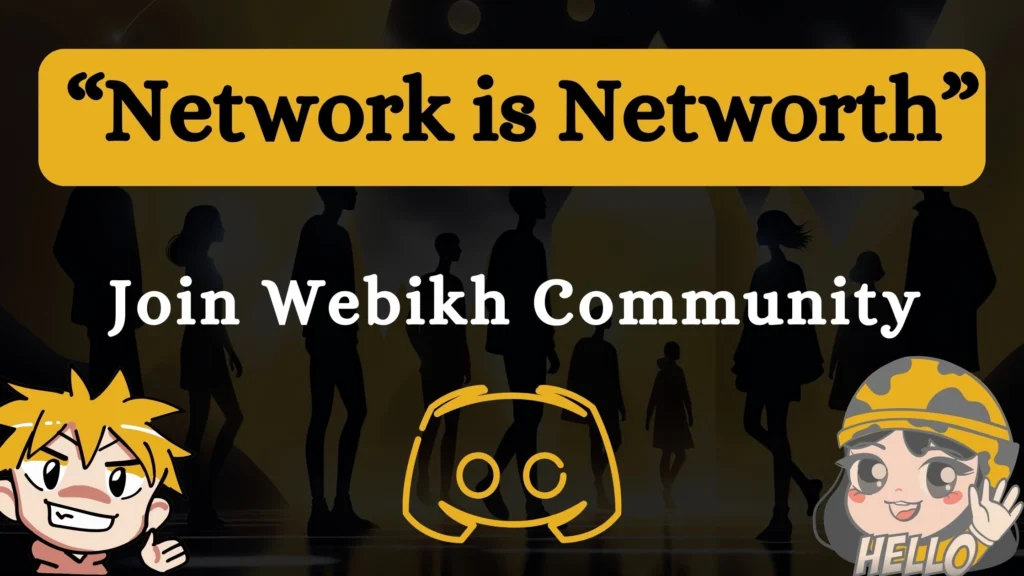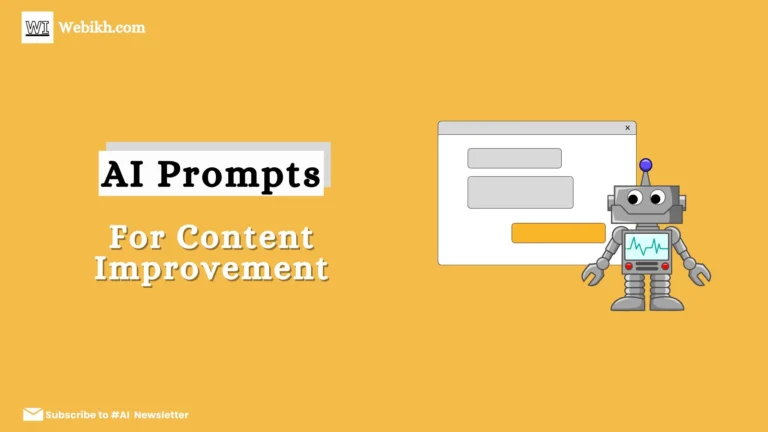What is Law’s future With Blockchain and AI in 2024?
How does the future of Law and Governance will look like with blockchain?
Can technologies like Metaverse, Artificial Intelligence, Cryptocurrency and NFTs be used in Legal Industry?
You must be having these questions right?
Let’s dive deeper in the world of web3 and see what it offers for your documents ?
Let’s start with the problems the Law and Legal sector faces and how it can be tackled ?
Subscribe to Webikh Newsletter
The Only AI and Web3 Focused Newsletter
Subscribe & Download Freebies !
The Problem: Legal Labyrinths and Paper Trails
Imagine you’re stuck in a maze, but instead of walls, you’re navigating through endless legal documents, contracts, and agreements.
That’s a bit what dealing with legal matters feels like. The world of law is filled with complexities, jargons, and mountains of paperwork.
Here are the key problems:
Complexity: Legal processes are often labyrinthine, leaving ordinary folks in a state of confusion when trying to navigate them.
Inefficiency: The legal system relies heavily on physical documents and in-person proceedings, making it slow and inefficient.
Costly: Legal services can be prohibitively expensive, making justice inaccessible to many.
Errors: Even legal professionals are not immune to errors in drafting or interpreting contracts, leading to disputes.
Inaccessibility: Not everyone can physically reach a courthouse or afford legal representation.
The need for a Web3-powered solution in the legal sphere is evident. How can these problems be addressed? Continue reading to find out. 🕵️♂️📜🕳️
The Solution: Smart Contracts and Blockchain to the Rescue
Now, let’s unleash the power of Web3 technologies to revolutionize the legal landscape.
Enter smart contracts and blockchain, the dynamic duo set to transform the way we create, execute, and manage legal agreements.
Smart Contracts Simplified:
Think of smart contracts as digital agreements with built-in brains. They automatically execute and enforce the terms of a contract when predefined conditions are met, without the need for intermediaries like lawyers or courts.
Blockchain’s Role:
Blockchain, the underlying technology of cryptocurrencies like Bitcoin, brings trust, transparency, and security to these smart contracts. Every action related to a contract is recorded in an immutable ledger, making it tamper-proof.
Here’s how this superhero duo tackles the legal woes:
Simplified Agreements: Smart contracts use simple code to create contracts. Parties involved in an agreement can easily understand the conditions, reducing complexity.
Efficiency and Speed: With smart contracts, processes that once took weeks or months can be executed in a matter of minutes or seconds. Imagine buying a house with just a few clicks!
Cost-Effective: Eliminating intermediaries means significant cost savings. You pay for code execution on a blockchain, which is often a fraction of traditional legal fees.
Error Reduction: Smart contracts operate on code, leaving less room for interpretation and error. This minimizes disputes arising from ambiguous clauses.
Global Accessibility: Web3 technology makes legal processes accessible to anyone with an internet connection, breaking geographical barriers.
Now, let’s dive into how this Web3-powered legal revolution will work in practice. 💼🔗🚀
How It Will Work: Web3’s Legal Makeover in Action
Let’s bring this innovative legal transformation to life with an example:
Meet Sarah, an aspiring freelancer, and Alex, a small business owner. Sarah’s web design skills are in high demand, and Alex needs a sleek website for his startup.
Traditionally, they’d need a legal expert to draft a contract, which could take days and cost a hefty fee.
But in our Web3-powered world, things are different. Sarah and Alex want a smart contract for their project:
Creating the Contract: They head to a Web3 platform tailored for smart contracts. It’s user-friendly and offers templates for various agreement types.
Defining Terms: Sarah and Alex customize the contract by specifying key terms: the scope of work, deadlines, payment conditions, and what happens in case of delays or changes.
Trust in the Blockchain: Once they’re satisfied with the terms, they both digitally sign the smart contract. This action generates a unique code on the blockchain representing their agreement.
Automated Execution: The smart contract is now live on the blockchain. As Sarah completes milestones (like designing the homepage), the agreed-upon payment is automatically transferred to her wallet upon verification. No delays, no disputes.
Transparency and Security: Every action related to the contract, from the initial agreement to milestone completion, is recorded on the blockchain. It’s transparent and tamper-proof.
Dispute Resolution: In a rare case where there’s a dispute, the blockchain’s immutable record serves as evidence. The code within the contract will define the resolution process.
The Impact: Legal Evolution Unleashed
The adoption of smart contracts and blockchain in the legal domain brings a multitude of advantages:
Accessible Legal Services: Legal processes become accessible to individuals and small businesses, reducing the dependence on expensive lawyers.
Speedy Transactions: Contract execution becomes lightning-fast, enabling swift business operations and reducing bottlenecks.
Cost Savings: Less reliance on intermediaries translates to significant cost reductions, democratizing access to legal services.
Reduced Errors: With precise, code-based contracts, the chances of misunderstanding or misinterpretation are minimized.
Global Reach: Parties from different corners of the world can engage in legally binding agreements effortlessly.
Now, before we celebrate this legal revolution, let’s not forget there are some challenges on the horizon. 🌅🚧
The Risks and Challenges: Navigating the Legal Web3 Landscape
While Web3 promises to revolutionize legal processes, there are several considerations to keep in mind:
- Technical Expertise: Not everyone is a coder, and smart contracts require a degree of technical know-how. This could potentially exclude those without such skills.
- Security Concerns: Just as the blockchain is immutable, once a smart contract is deployed, it’s difficult to change. If there are flaws or errors in the code, they can’t be rectified easily.
- Privacy: While transparency is a strength of the blockchain, it might not align with the confidentiality often needed in legal matters.
- Legal Recognition: Smart contracts are still navigating the legal landscape. Not all jurisdictions accept them as legally binding, which can pose challenges for enforcement.
- Complexity of Agreements: Some agreements, especially those requiring nuanced human judgment, might not be suitable for automation via smart contracts.
- Fallback Mechanisms: What happens if a smart contract doesn’t account for every scenario? Parties must establish fallback mechanisms, which can complicate the process.
MUST READ :
What is Real Estate’s future With Blockchain, AI and Metaverse?
What is Retail’s future With Blockchain, AI and Metaverse?
What is Health Industry’s future With Blockchain and AI?
What is Charity’s future With Blockchain, AI and Metaverse?
Conclusion: A Glimpse into the Legal Future
Web3’s integration into the legal realm is an exciting journey into the future.
It promises to make legal processes more efficient, accessible, and secure.
Yet, like any transformative technology, it comes with its set of hurdles.
As the legal world adapts to this new era, it’s essential to strike a balance between innovation and the preservation of fundamental legal principles.
With careful navigation, Web3 can usher in a legal landscape that’s fairer, more efficient, and truly accessible to all.

FAQ : AI & Blockchain for Legal Industry
AI impacts the law profession by automating document review, legal research, contract analysis, and providing predictive analytics for case outcomes, leading to i
What is the blockchain in the judicial system?
ncreased efficiency.
Blockchain in the judicial system can enhance transparency and security by creating an immutable record of court proceedings, evidence, and legal documents. It can also streamline processes like case management and notarization.








Thank you for your sharing. I am worried that I lack creative ideas. It is your article that makes me full of hope. Thank you. But, I have a question, can you help me?